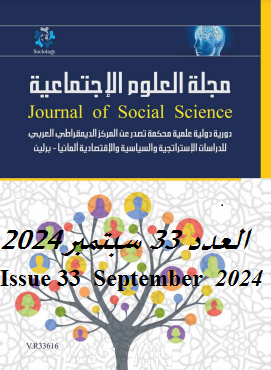THE DEMOCRATIC PULSE: TRACKING POLITICAL EVOLUTION IN MOROCCO
Keywords:
Democratic Transition, Monarchical Influence, Civil Society Engagement, Comparative PoliticsAbstract
The article titled "The Democratic Pulse: Tracking Political Evolution in Morocco" explores the multifaceted process of democratic transition in Morocco. Utilizing a qualitative methodology, the study analyzes a range of primary and secondary sources, including scholarly articles, government documents, and expert analyses. The main argument posits that Morocco's path toward democratic transition is unique within the context of North Africa and the Middle East, shaped by a complex interplay between the monarchical system, political elites, civil society, and external influences, along with a civilizational legacy that is intricate and interconnected. The article begins by situating Morocco's political development within a historical and theoretical framework, exploring the legacy of colonialism and the theoretical foundations of democratic transition. It then delves into the role of the monarchical system and political elites, scrutinizing their impact on the political landscape and the extent to which they facilitate or hinder democratic reforms. The analysis extends to include the political party system, electoral processes, and the sharp divide between Islamists and secularists, assessing their influence on the trajectory of democratic transition. A significant focus is placed on the role of civil society in enhancing democratic participation. The study evaluates the contributions and challenges faced by non-governmental organizations and social movements, highlighting the obstacles that impede their effectiveness and the strategies used to overcome them. A comparative analysis with other countries affected by the Arab Spring provides a broader regional perspective, while international influences are examined to understand their role in shaping democratic reforms in Morocco. The article concludes with a discussion of current trends, future prospects, and policy-related recommendations, emphasizing the need for sustained local and international support for Morocco's democratic journey. The study concludes that although Morocco has made notable strides toward democratic transition, the process remains fragile and depends on the continued engagement of all stakeholders. The study underscores the importance of understanding Morocco's unique context to foster a democratic system that reflects the country's specific political, social, and cultural dynamics
Downloads
Published
Issue
Section
License
Copyright (c) 2024 Journal of Social Sciences

This work is licensed under a Creative Commons Attribution-NonCommercial 4.0 International License.
This work is licensed under CC BY-NC 4.0






